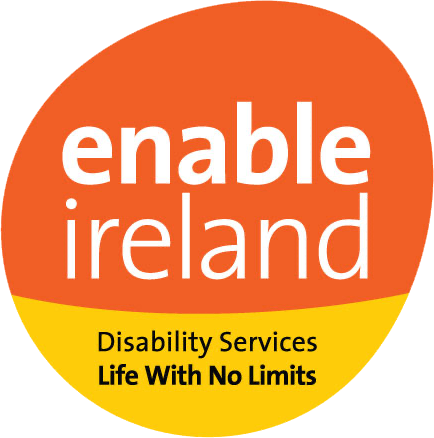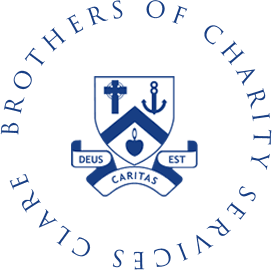Transition to Adult Services
CDNTs support children and young people who have complex needs arising from a disability. Once they reach 18 years, your young person will transition into Adult Services.
Supporting your young person’s skills development (12-16 years)
Discussions around the transition to young adulthood should start early on. A lot of literature suggests that parents begin to think about these changes while their young person is between the ages of 12-16 years.
As your young person moves into adolescence, there will be a natural focus on the development of their independence skills and their sense of autonomy.
You and your young person can take this time to think about and identify what skills they might need as they progress towards adulthood, and to also think about what is important to them and their own goals.
Skills development will look different for every young person. It can be as simple as choosing appropriate clothing to wear to school, to money management, to identifying ways they like to enjoy their free time, and who they want to spend time with.
As part of their work with the CDNT, your young person, as appropriate, will be actively involved in the goal setting for their Individual Family Support Plan (IFSP). They can use their IFSP goal setting to work on the skills they have identified as important to them.
Talking about this transition with your young person (16-18 years)
It’s important to start discussions with your young person around what they would like to do when they finish school. You will know best when and in what format the discussions should happen.
Don’t be scared to allow your young person to be independent. It looks different for every young person with complex needs arising from a disability, and it may take some time to consider what will work for them.
Below are some suggestions for your discussions with your young person.
- What do they want to do?
- Where do they want to live in the future?
- How do they want to spend their time and who with?
- Would they like to use community support or work with personal assistants etc?
- Will they attend college or a day service or will they work?
- Can they travel independently?
- What changes will this bring to family life?
- What types of supports will they need for these changes?
- What their entitlements are, such as Disability Allowance.
- Conversations with them about sexuality and relationships.
- How they want to make choices and learn to advocate for themselves.
These questions can take time to answer, because they are often dependent on what support will be available to your child as they reach adulthood.
It is important to remember as well that once a young person is over the age of 16 years, it is assumed they have capacity to make decisions, according to the Assisted Decision-Making Act 2022: Assisted Decision-Making (Capacity) Act 2015 (citizensinformation.ie)
Discussing the transition to Adult Services with your CDNT
As part of this planning, you and your young person could discuss the following with their CDNT:
- Access to healthcare and disability supports
- Community resources and supports
- Human rights and disability
Accessing Disability Adult Day services
The Day Opportunities Officer from the HSE's Day Opportunities Service will liaise with you, your young person, and their school, during their last year in school. If your young person is in an autism class attached to a mainstream school, you may wish to clarify with the school if they will make the referral or if you should contact the Day Opportunities Service Office. Your CDNT may also be asked to share information with the Day Opportunities Officer with your consent.
Adult day services are HSE funded programmes to provide day service supports to people, age 18 and over, with intellectual disabilities, autism, or people with complex physical disabilities. The programmes assist people to make choices and plans and to be an active, independent member of the community. Service Providers have individual service entry criteria and deliver varying degrees of supports to people with a very diverse set of needs, wishes and aspirations.
The HSE fund NEW DIRECTIONS type day services. New Directions provides a Model of Supports organised around the person, based on their identified needs and wishes. This approach sets out to ensure that being part of one’s community is a real option. To read more about New Directions go to HSE’s website: www.hse.ie/newdirections
Rehabilitative training programmes are training courses funded by the HSE to develop life skills, social skills, and basic work skills for people with intellectual disabilities, autism, mental health difficulty or people with complex physical disabilities. The courses usually last from two to four years. These courses can be a stepping stone to more mainstream education or training options.
Referral Criteria
- To refer for HSE Day Service the young person must have a confirmed diagnosis of any of the following:
Autism Spectrum Disorder (ASD), Mild, Moderate or Severe Intellectual Disability, Physical and Sensory impairment (deaf / hard of hearing or blind / visually impaired) - Diagnoses NOT meeting the criteria for HSE day services are: ADHD, Dyslexia, Dyspraxia, Dyscalculia, mental health issues only, such as Depression, Anxiety.
Transition can be daunting and while decisions you make are important, they will not be for life. The aim is to allow for as smooth a transition as possible for your young person, so they feel empowered as they enter adulthood and are excited for the day service opportunities ahead of them.
If you require any further information regarding a Day Service or Rehabilitative Training a member of the Day Opportunities Team will be happy to help:
Address: Adult Disability Day Services, St Dympna’s Hospital, Athy Road, Carlow R93 DE62
Phone: 059 9136417
Email: disabilitydayservices.cho5@hse.ie



